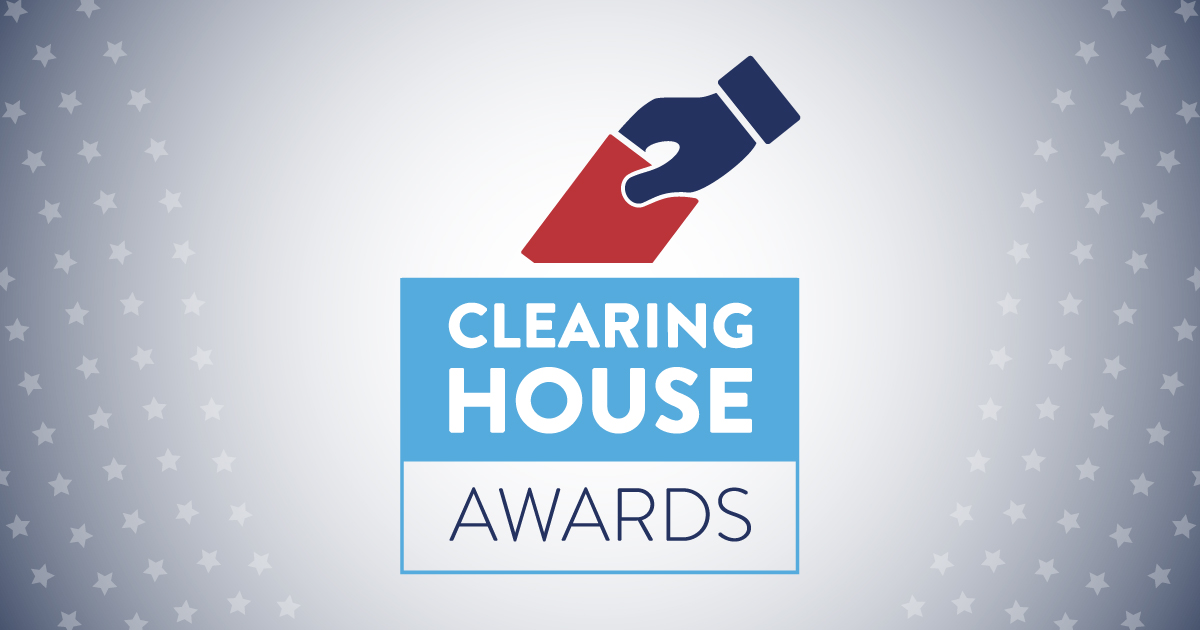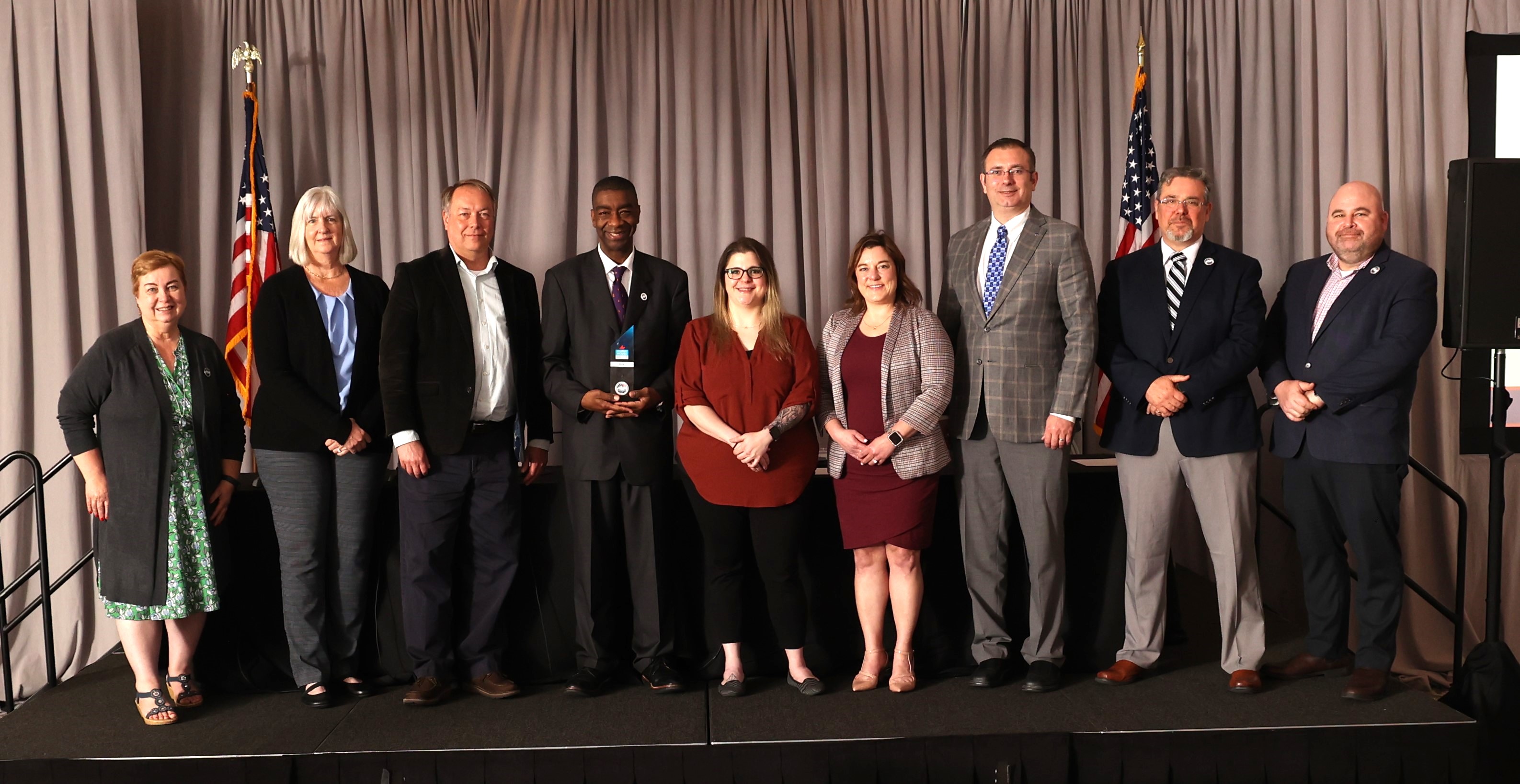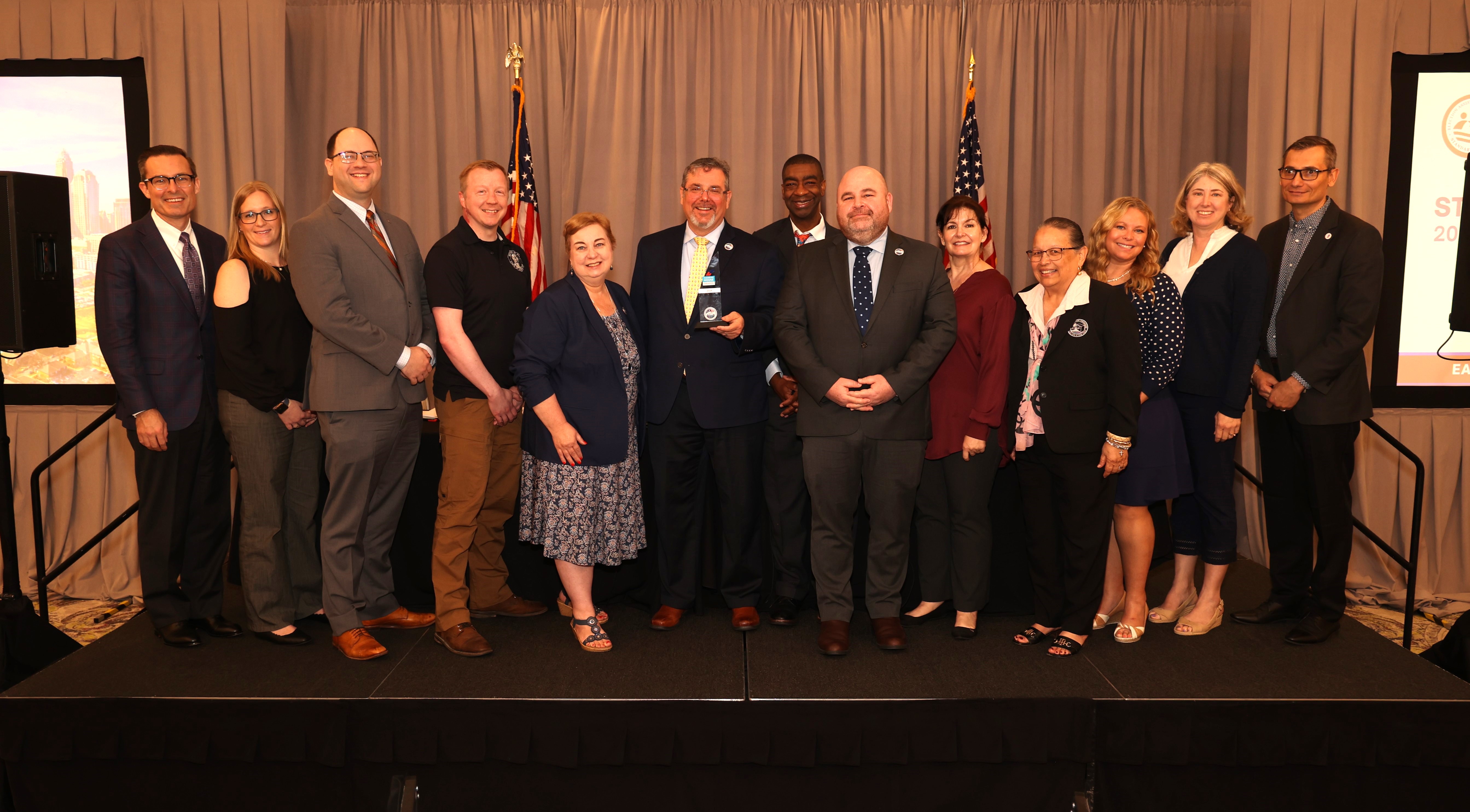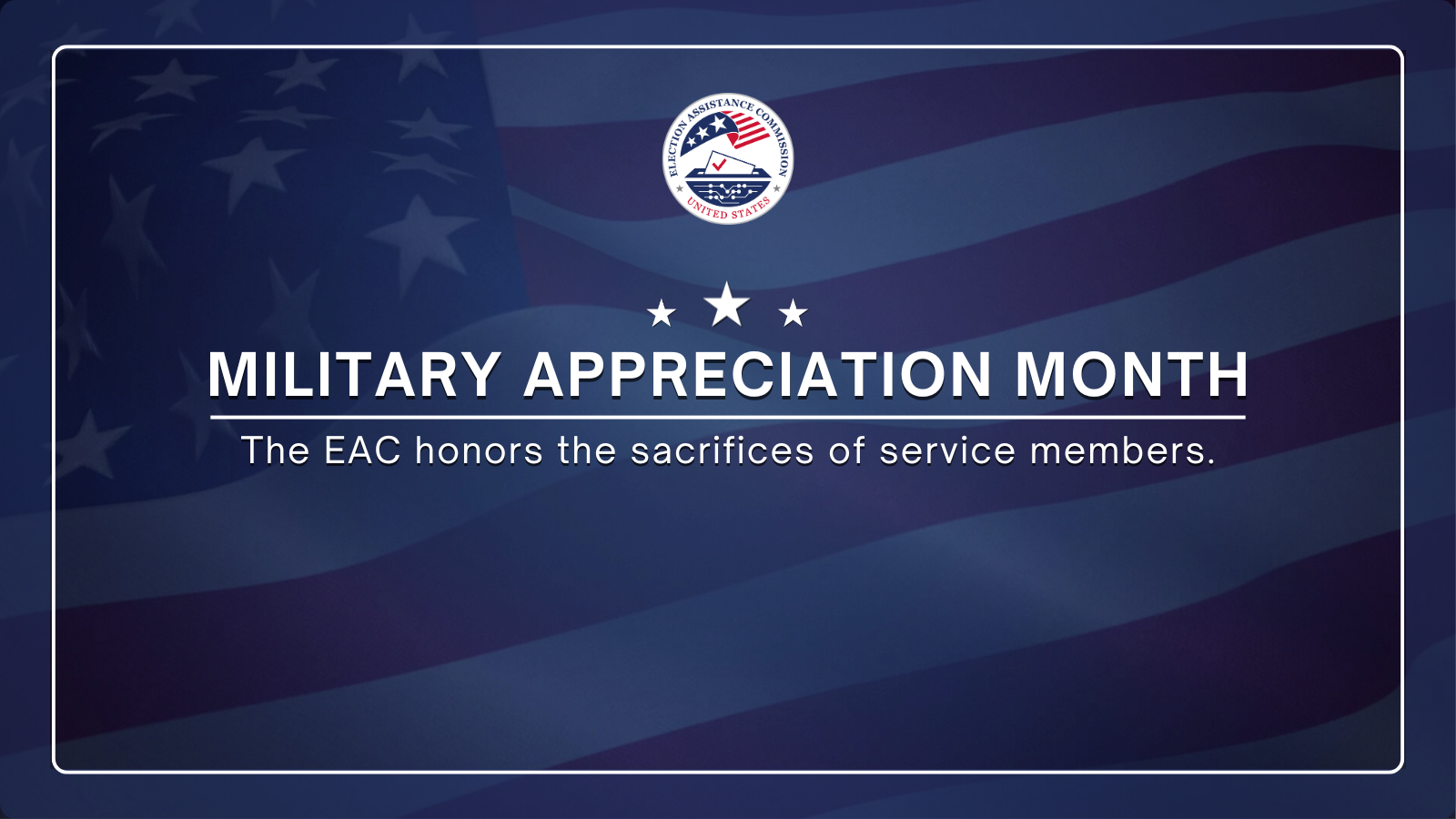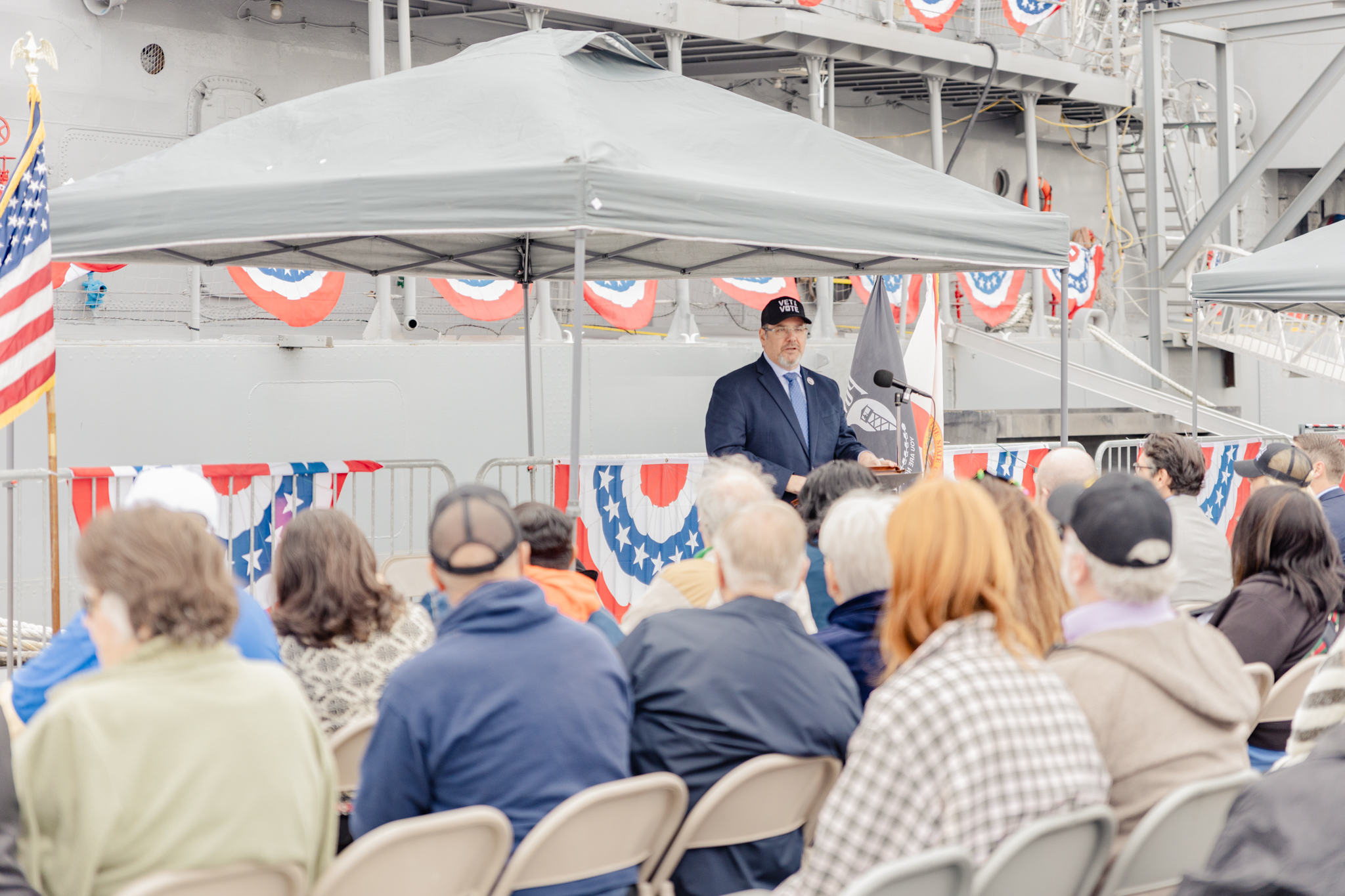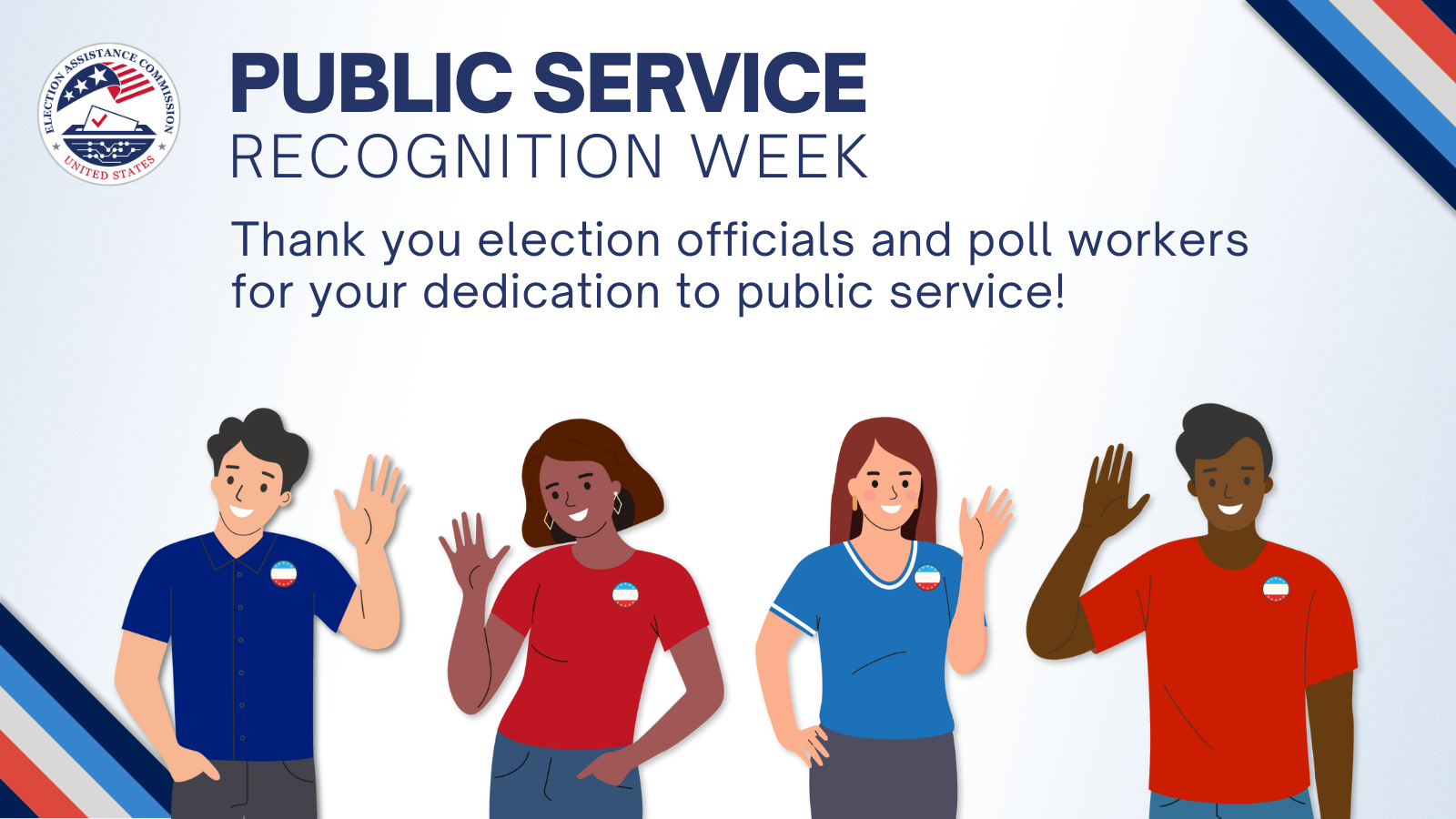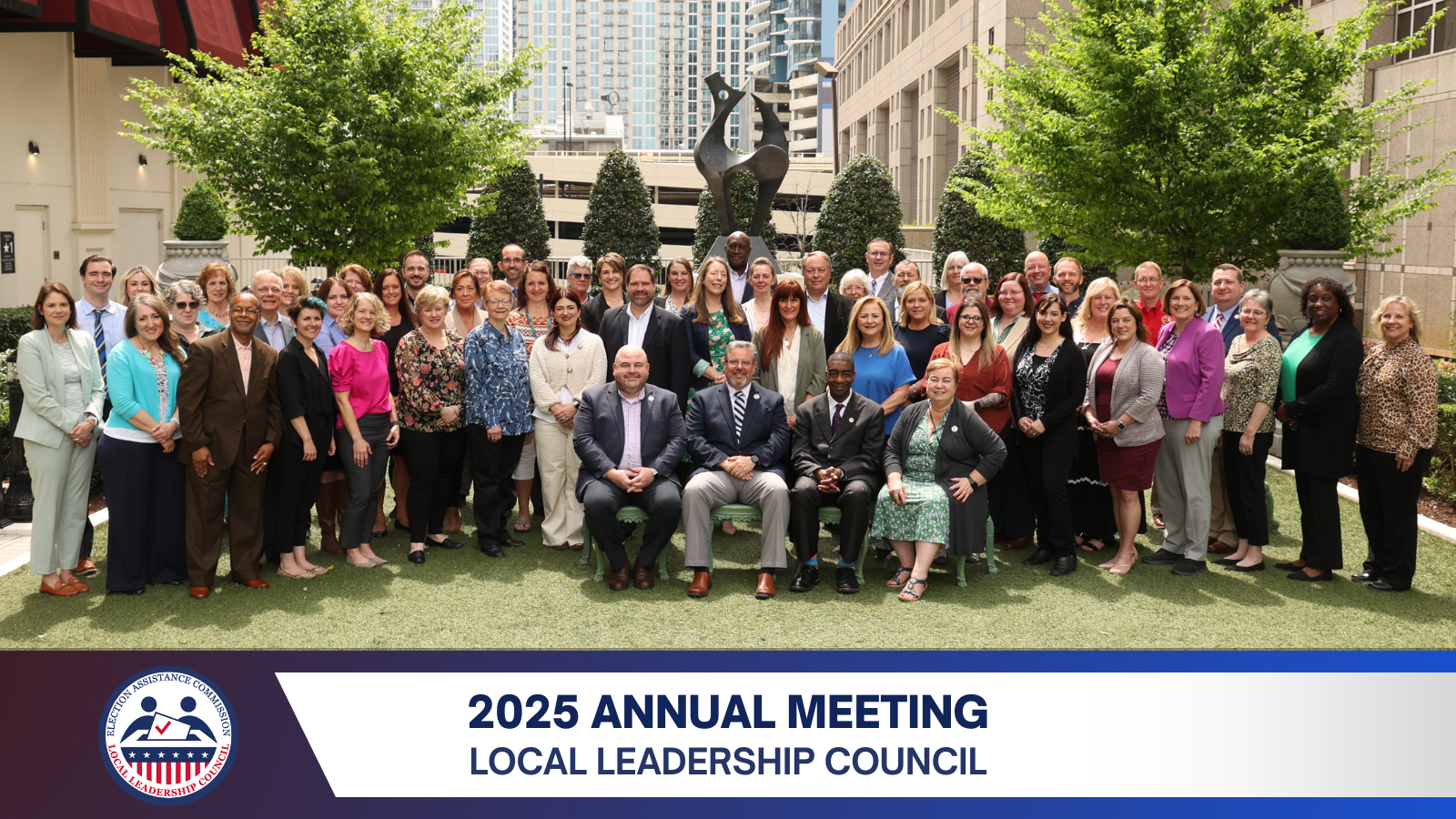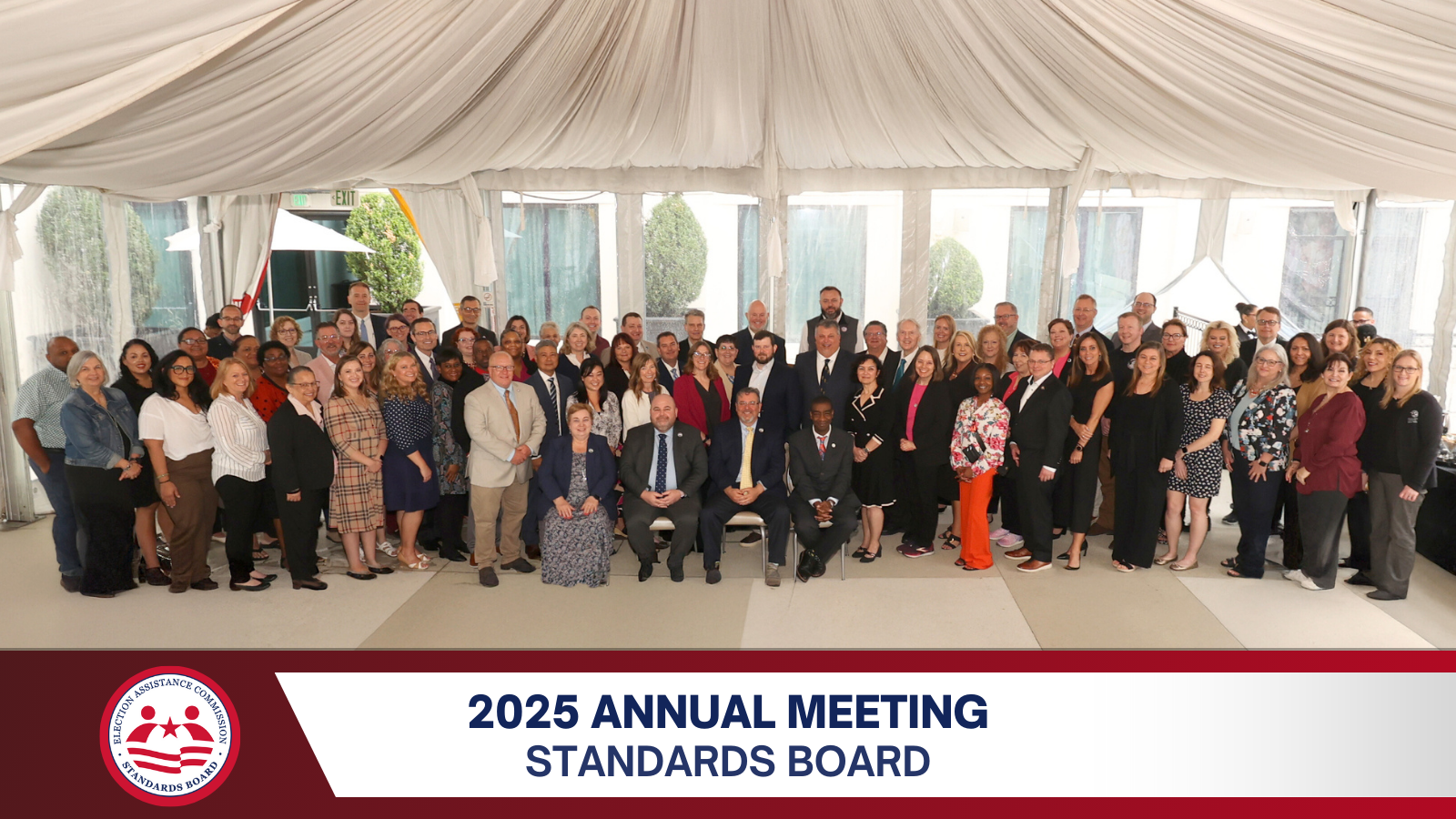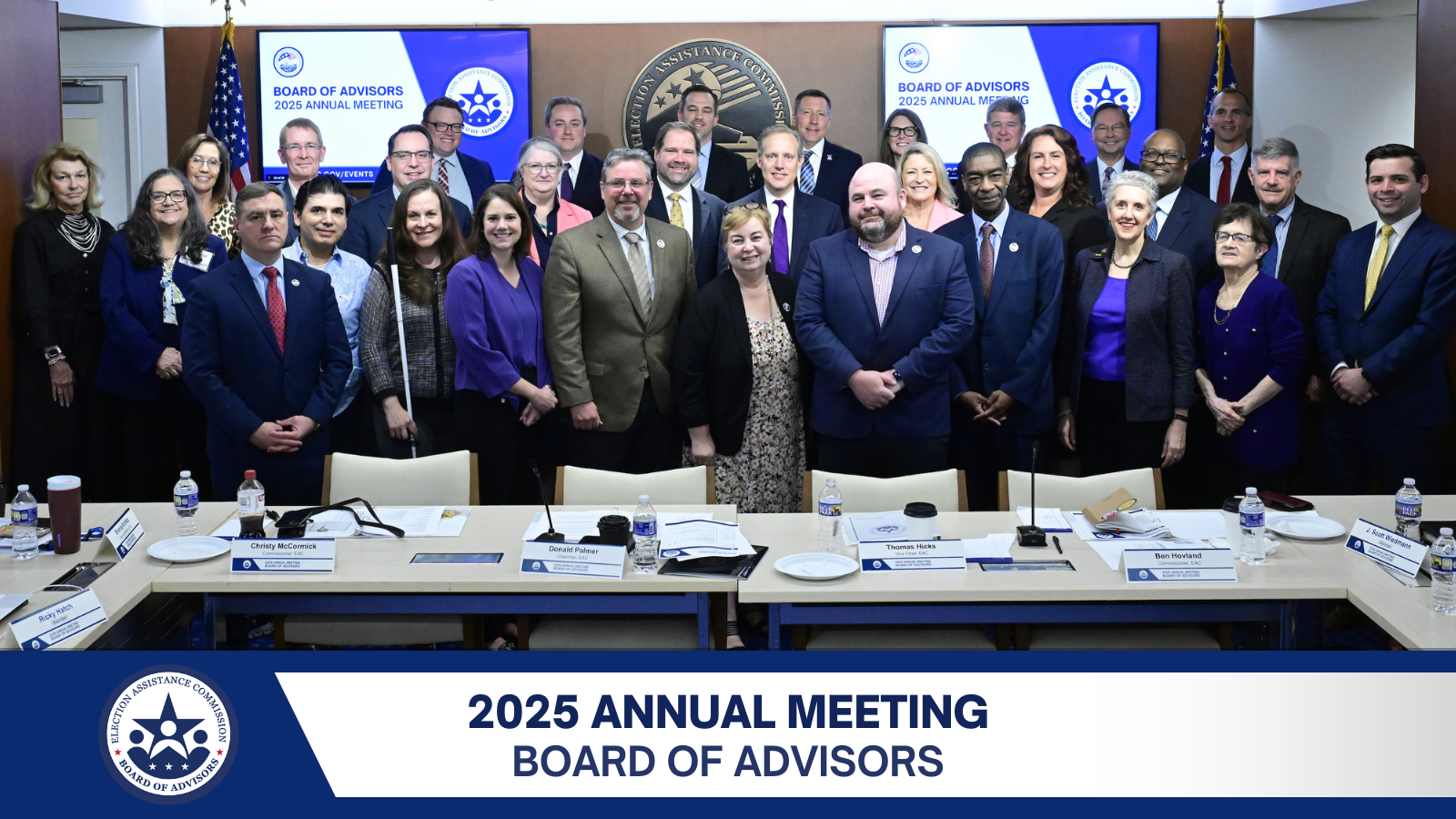This month, the EAC is highlighting:
- 2024 Clearinghouse Award Winners Announced!
- May is Military Appreciation Month
- Thank You, Election Officials -— Public Service Recognition Week was May 4-10
- Helping America Vote: Election Administration in the United States Guide
- How are Elections Funded? New Memo from the EAC and NCSL Addresses this Question
- LLC and Standards Board Annual Meetings Recap
- Board of Advisors Annual Meeting Recap
53 State and Local Election Office Programs Win 2024 Clearinghouse Awards!
Throughout the year, state and local election officials work hard to serve their voters. This year, the EAC recognized 53 winners and 44 honorable mentions for the 2024 Clearinghouse Awards or “Clearies.” The EAC received a record-breaking 258 submissions, reflecting the amount of exceptional work done throughout the presidential election year.
EAC Chairman Donald Palmer, Vice Chair Thomas Hicks, Commissioner Christy McCormick, and Commissioner Ben Hovland issued the following joint statement:
“This year’s Clearinghouse Award-winning programs truly shined amid the high voter turnout in 2024. They are examples of the outstanding work election officials did to support tens of millions of voters during the presidential election. After nearly a decade, the Clearinghouse Awards continue to grow with a record number of entries received this year. These programs show how state and local election offices are the incubators of innovation. We are pleased to lift their ideas up and celebrate them on a national stage.”
The categories included:
- Communications: Distinguished Voter Education and Communications Initiatives
- Security: Innovation and New Tools in Election Security and Technology
- Contingency Planning: Exemplary Contingency Planning and Emergency Response Efforts
- Election Administration: Innovations or New Practices in Election Administration
- HAVA Grants: Outstanding Use of HAVA Grants in Elections Modernization
- Accessibility: Best Practices for Improving Accessibility for Voters with Disabilities
- Poll Workers: Best Practices in Recruiting, Retaining, and Training Poll Workers
- “I Voted” Stickers: Creative and Original “I Voted” Stickers
Take a look at the list of winners and their programs, as well as the honorable mentions and their programs. Submissions were judged by a panel of election officials from the EAC’s boards. Criteria included innovation, cost-effectiveness, replicability, sustainability, meeting category requirements, and improving outcomes for voters and election officials.
Thank you to everyone who submitted entries for all your hard work to better serve your communities. The 2025 Clearinghouse Awards submission period will begin in early 2026. Bookmark eac.gov/clearies for more information in the future.
(The EAC Commissioners present a Clearie Award to winners at the Local Leadership Council Annual Meeting.)
(The EAC Commissioners present a Clearie Award to winners at the Standards Board Annual Meeting.)
May is Military Appreciation Month
This month, the EAC honors the military personnel who serve our country.
The EAC provides a variety of resources to assist military voters and the election officials who serve them. These include a UOCAVA Quick Start Guide, Fact Sheet and Pocket Guide developed in collaboration with the Federal Voting Assistance Program, as well as state-specific policies, research, reports, and more. Election officials may also benefit from this EAC blog post, which offers guidance on how to effectively support military and UOCAVA voters.
Many veterans continue their service to our country as election poll workers. In these two videos, EAC Chairman Donald Palmer spoke with West Virginia Secretary of State Mac Warner and Alabama Secretary of State Wes Allen on their Heroes at the Polls programs. They discussed guidance and best practices for recruiting veterans for these critical roles.
On December 5, 2024, on the USS Orleck pier in Jacksonville, Florida, the EAC and Vet the Vote hosted an event to show appreciation for poll workers, especially veterans and their families. The event also highlighted opportunities for current service members, veterans, and their families to participate as poll workers in the future. Leading up to the 2024 general election, over 163,000 veterans and military family members signed up to be poll workers through Vet the Vote.
(Chairman Palmer speaking on the USS Orleck.)
Stay tuned for the Election Administration and Voting Survey (EAVS) Report, coming in June, which will have in-depth information on military and UOCAVA voters from the 2024 general election. This data on their voting practices includes the total number of registered military and UOCAVA voters, the quantity of and methods by which ballots were transmitted to and returned by these voters, and more.
Public Service Recognition Week was May 4 –10
Helping America Vote: Election Administration in the United States Guide
The EAC partnered with NCSL to develop an in-depth guide that provides a clear, nonpartisan overview of how elections are managed across the country - from voter registration to recounts and certification. Designed for policymakers, election officials, and the public, it highlights the variety and complexity inherent to America's decentralized election system. While there are many differences between how election are administered, there are also many common practices.
This document covers:
- Geography,
- Ballot Design,
- Voter Registration,
- Voter Outreach,
- And much more.
Funding Election Administration Document from the EAC and NCSL
With elections being administered at the county or local level, most associated expenses are paid for by these jurisdictions. When new resources like voting systems, personnel to staff voting locations, special paper to print ballots, or cybersecurity tools are required, it is often the responsibility of the county or local jurisdiction to secure the necessary funds. These needs can compete with other local budget requests, as limited resources must be allocated across various government services.
This joint EAC and NCSL document summarizes the different funding streams available in some states and from the federal government. It covers state funding, federal funding, and a chart showing a breakdown of state and local responsibilities for categories of election expenses.
Local Leadership Council and Standards Board Annual Meetings Recap
The EAC’s Local Leadership Council and the EAC’s Standards Board held their Annual Meetings on April 21-22 and April 24-25, respectively, in Charlotte, North Carolina. The boards discussed the executive order related to elections, audit standards, signature verification, the EAC Learning Lab and workshops, and more.
The LLC board members met within their regional committees, where they discussed goals and issues related to their regions. The conversations were very productive, leading to the members setting up further virtual meetings to continue the discussions.
The Ideas Lab, held on Wednesday, April 23, allowed nearly 100 participants from both the LLC and the Standards Board the opportunity to meet and talk with the other board’s members. This was the first time the two boards met and effectively interacted with each other.
Board of Advisors Annual Meeting Recap
The EAC’s Board of Advisors held its Annual Meeting on May 5-6, in Washington, DC.
The board members had robust discussions on audit standards, voter registration and list maintenance, the upcoming 2026 and 2028 elections, and the executive order relating to elections. The board members also had conversations with Representative Bice from the U.S. Committee on House Administration and Senator Padilla from the U.S. Senate Committee on Rules and Administration, where they talked about their legislative priorities, including ensuring bipartisan approaches to election administration and increased funding.
EAC Chairman Donald Palmer, Vice Chair Thomas Hicks, Commissioner Christy McCormick, and Commissioner Ben Hovland issued the following joint statement on the three board meetings:
“Through these meetings, we heard from election officials from every region of our country on the most important issues they face in their states and jurisdictions. The feedback emphasized the necessity for more training opportunities, continued communication on updates to the Voluntary Voting System Guidelines 2.0, as well as concern for consistent funding of elections, especially to drive planning for necessary upgrades to election equipment. These comments will be shared with our staff and factored into future programs and resources.
“These in-person interactions with our advisory boards are invaluable to ensure the EAC is meeting its mission to serve election administrators and voters.”



